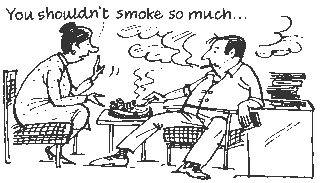Ought To
Examples:
- You ought to stop smoking. recommendation
- Jim ought to get the promotion. It is expected because he deserves it.
- This stock ought to increase in value. probability
- Mark ought not drink so much. advice against something (notice there is no "to")
Using "Ought to" in Present, Past, and Future
Most modal verbs behave quite irregularly in the past and the future. Study the chart below to learn how "ought to" behaves in different contexts.| Modal Use | Positive Forms 1. = Present 2. = Past 3. = Future |
Negative Forms 1. = Present 2. = Past 3. = Future |
You can also use: |
| ought to recommendation, advice | 1. Margaret ought to exercise more.
2. Margaret ought to have exercised more so she would be better prepared for the marathon. 3. Margaret ought to come to the fitness center with us tonight. |
1. Margaret ought not exercise too much. It might cause injury.
2. Margaret ought not have run the marathon. She wasn't in good shape. 3. Margaret ought not stay at home in front of the TV. She should go to the fitness center with us. |
should |
| ought to assumption, expectation, probability | 1. She ought to have the package by now.
2. She ought to have received the package yesterday. |
"Ought not" is used primarily to express negative recommendations. (See above.) | should |


